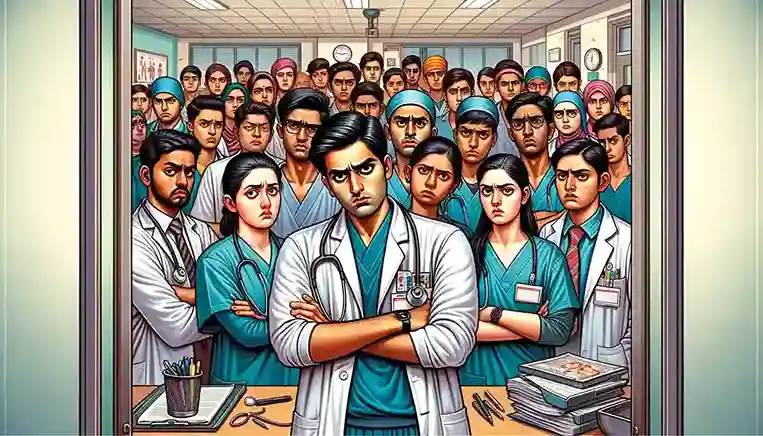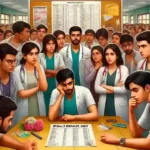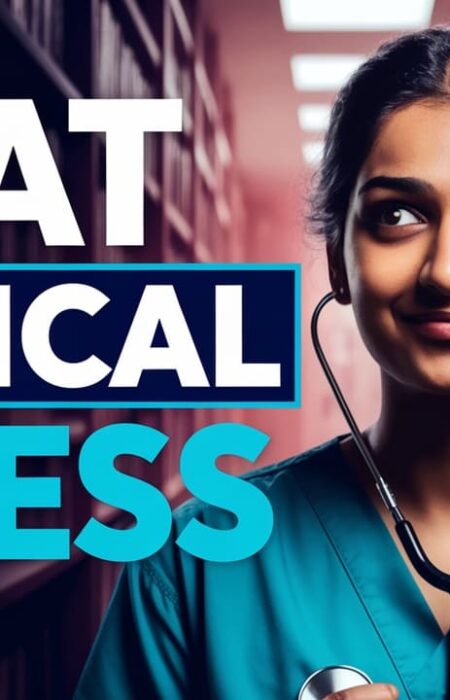Why Is MBBS Seen So Negatively online? A Med Student’s Perspective.
If you’re browsing through social media, you’ll often come across a lot of negative posts about MBBS and medical life. But why is there so much negativity?
As a medical student myself, I’ve often thought about this and have some insights to share. The reality is, medicine is grueling and difficult, not as happy-go-lucky as some might believe.
Here’s my insight into whether the negativity truly reflects our experiences.
Our profession.
We love walking around in the white coat. Putting the stetho around our necks is an unmatched feeling. The idea of having the ‘Doctor’ tag before our names makes us teary eyed.
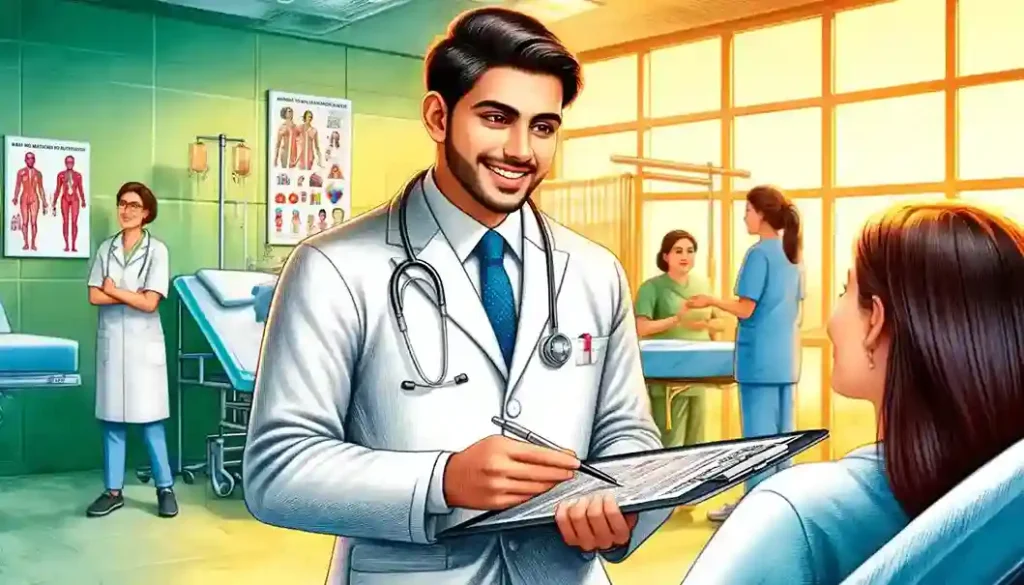
We love it when our relatives and friends start respecting us. We love how honored our parents feel because of our profession.
The smile on the faces of patients’ relatives when they see their loved ones healed is one of the most beautiful feelings in the world.
Why So Much Negativity Then?
Despite the pride and joy, why do we complain? The answer is very simple: we are humans after all.
We all tend to talk about our bad days, our stress and our problems. Naturally, we tend to rant and complain about the struggle in the journey. Online platforms like social media turn out the best way to put forth our thoughts. These thoughts are rather interesting:
The Harsh Reality
Hospitals are inherently stressful environments. Hospitals are full of sick and dying people. You will tend a patient for weeks and you might still have to deal with their death due to the natural order of life.
Interns have to live inside the hospitals 24/7. They have to cope with the stress of people dying around them.
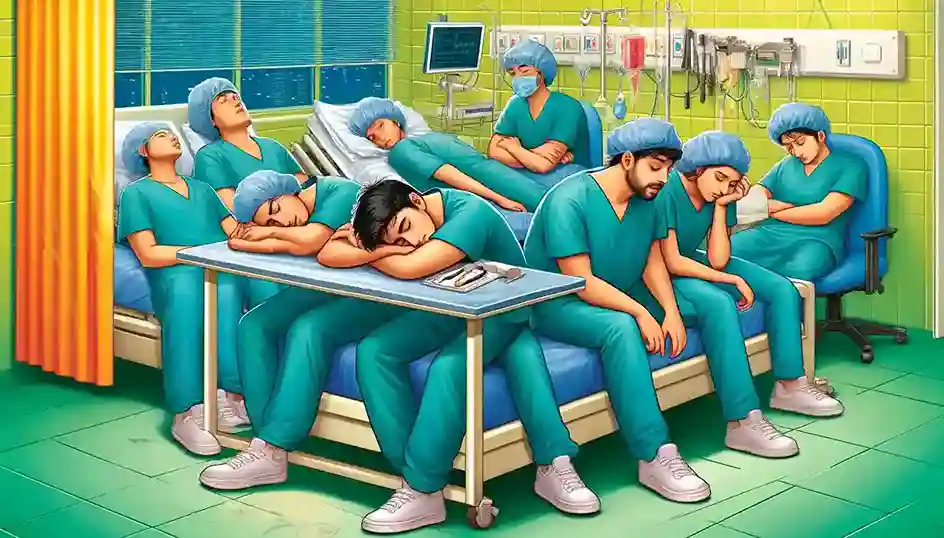
During my NEET phase, I thought medicine would be much easier. But honestly, it is very difficult to get through the MBBS course.
The Toxic Environment
We have all been toppers in our schools. When we come to medical colleges, there is a clash among all the toppers. It is a new feeling of incompetence that we haven’t dealt with. The environment also becomes highly competitive and sometimes even plain toxic.
The academic path thus becomes laden with self doubt and insecurities. Most of us develop imposter syndrome, where we start doubting our caliber, and question if we deserve to be in medicine.
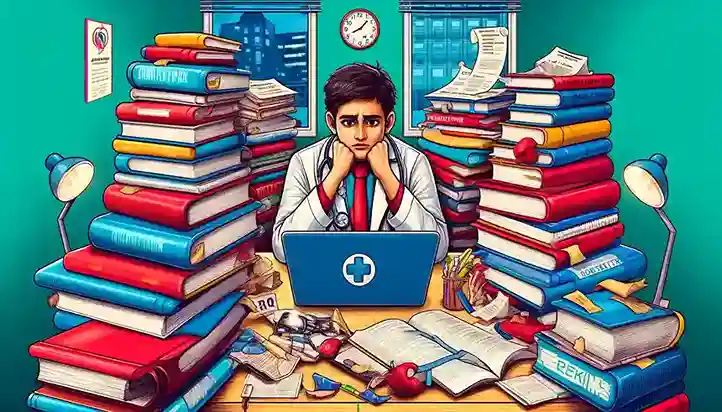
Sacrifices and Isolation
Many of us leave our homes and comfort zones. People from All India Quota move hundreds of kilometers away. There is social isolation and cultural shock due to the differences in the things here and those back home.
We spend our entire youth (a complete decade) just learning. Even after that, the learning never ends. Meanwhile, our non-medical friends are well-settled by the time we graduate. This leads us to question our life choices.
Financial Strain
Medical education is very costly. The fees of private colleges is very high and can cause a financial strain on the house. Even in government colleges, the cost of the books and the resources outweigh many other courses. One book costs around 1500. There are 19 subjects each requiring 2-3 books.
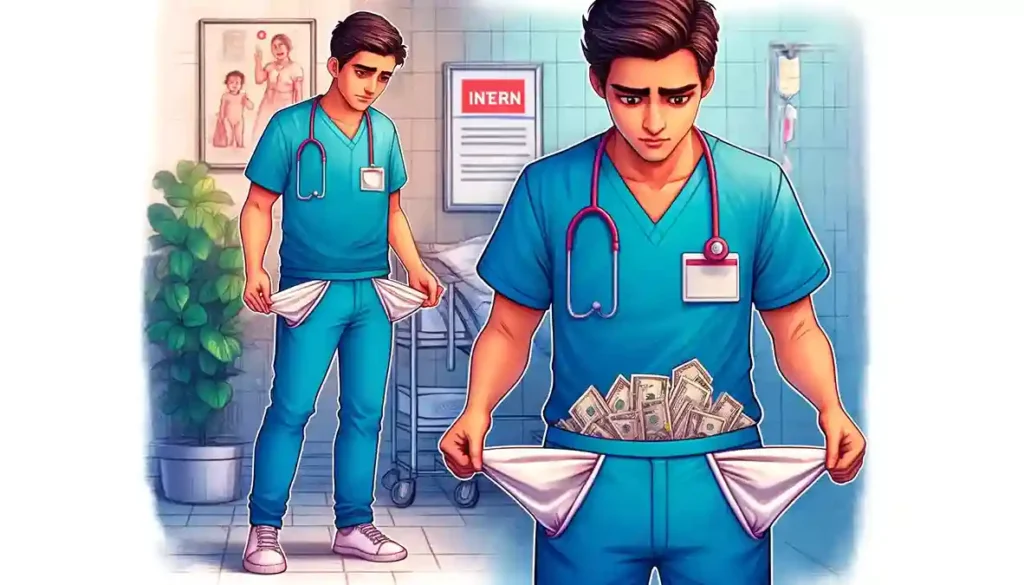
Apart from that the cost of living away is also hefty.
While our friends in other fields start earning and building their careers in their early 20s, medical students are still studying. The delayed financial gratification is frustrating.
Impact of Mental Health
The constant pressure to perform, coupled with the emotional toll of life and death, makes one very stressed. The exam times are brutal. We go sleepless for days, surviving only on caffeine and junk food.
The vivas are so difficult. Even the topper can be called a ‘waste of space’ and ‘unfit to study MBBS’. Such comments again take a toll on our mental health and make us question if all the struggle is even worth it.
The Delayed Rewards.
Medicine is not as straightforward as promised to us during NEET. We often think that clearing NEET is the last struggle and MBBS will be easier. But honestly, the struggle begins in MBBS.
Coupled with the PG competition and the decreasing value of just the MBBS degree, it’s difficult to be content immediately. You have to work, work, work. Your early thirties are the beginning of some stability for a medico.
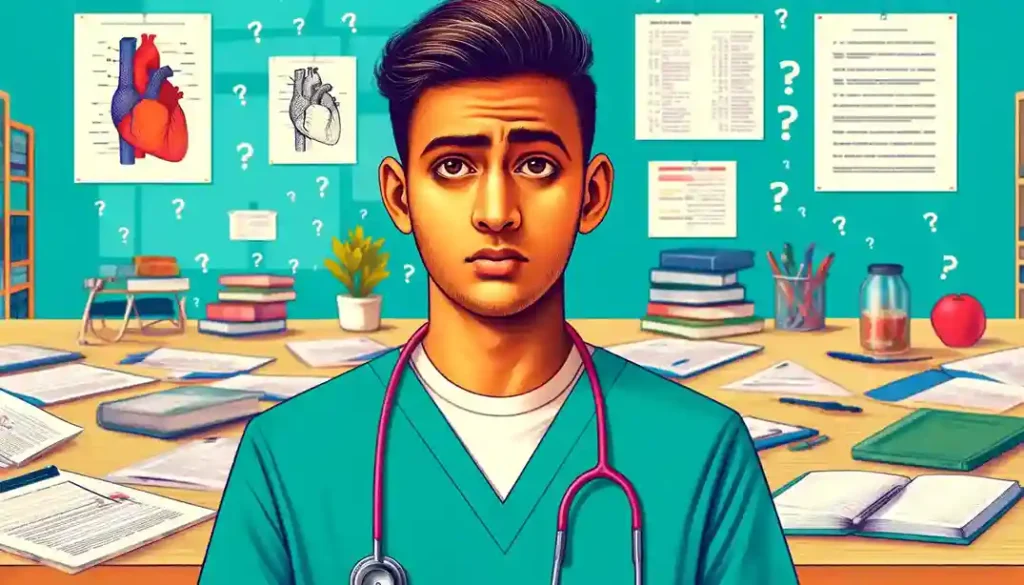
Feeling Restless and Unsure
Due to all these reasons, I feel restless and unsure about my future too. I know there will be a time when all the struggle will fall into place, the dots will connect, and I will say, “I am glad I worked so hard on MBBS, and I would do it again in a heartbeat.”
But right now, when I am in the middle of the storm, it becomes difficult to see things clearly. All I see is hard work, with no immediate returns. As I said, we are only human.
One thing I can say for sure is that we choose this profession and work for it because we have a passion for medicine, for saving lives. I don’t think anybody who does not share this passion will be able to work so hard. The demands of the degree urge people to talk about it in the way they do. It’s the promise of ease versus the reality of years of struggle.
Ultimate Satisfaction
Despite all the negativity, I have not met a single medico who regrets being part of this beautiful fraternity. When medicine becomes your first love, all these problems seem small in comparison.
Every doctor I meet has a commendable personality, reminding me why I chose this profession and why I am staying.
Conclusion
Even today, I feel a myriad of emotions associated with my profession. The other day, I went to a government office to get some work done. Initially I was being sidelined and the officer asked me to ‘come back some other day’. But then when I told him that I am a medical student, his behavior changed completely. He started calling me ‘Doctor Madame’ and completed my work in a jiffy.
This is one of the reasons we get into MBBS and stand our ground throughout the journey. The respect. It’s unlike any other profession. It is out of plain admiration and love, not out of fear. I can already feel the difference that being a medical student has. And let me tell you all the toils and complaints are worth it, when you get this feeling.
So, yes, we might rant someday. Talk about how taxing it is. But we will still go out and work as much as the profession asks us to. It is a difficult degree but it is totally worth it.
